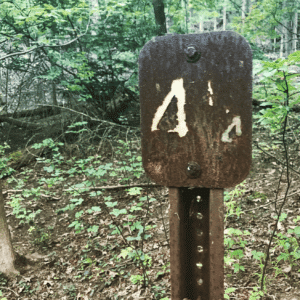The periodic table lists approximately ninety metals. And every one of these metals can corrode. However, corrosion occurs at different rates, and while all may have the ability to corrode, not all of them actually do.
So, what is corrosion? And why are some metals more corrosion resistant than others?
What Is Corrosion?
Corrosion refers to the deterioration of the metal involved. The rate of this corrosion generally depends on the type of metal it is and the kind of environment it is exposed to. While all metals can corrode, some tend to corrode faster than others.
For example, you might notice rust quickly develop on an iron object, whereas steel corrosion is a rare and prolonged process. This is because when you combine iron with other metals it becomes more corrosion resistant. Objects made from stainless steel, brass, and aluminum also tend to have a very slow rate of corrosion.
We can better understand this by examining the corrosion process.
How & Why Does Corrosion Occur?
Corrosion occurs when atoms of the entire metallic surface become oxidized as a reaction to their environment. Hence, metals that are easily oxidized tend to corrode much faster than others. This is called general corrosion.
Localized corrosion, on the other hand, occurs only on a small area of the metallic surface. Sometimes this corrosion can even lead to small holes, or “pitting”.

Additionally, other kinds include galvanic corrosion, where only one of the two metals is affected. This happens especially when two different types of metal are placed in the vicinity of some kind of liquidized electrolyte. In such circumstances, one metal’s molecules may be drawn towards the other metal, thus causing corrosion in the other.
So, we can see that corrosion is largely determined by environmental factors, the gases they are surrounded by and other elements and metals that might be around. With that in mind, there are a few ways we can slow down or even prevent this process from happening.
A Simple Guide to Corrosion Prevention
Prioritizing corrosion prevention can go a long way in saving you money, as well as keeping yourself and the people around you healthy.
Firstly, it is essential to choose the metals you surround yourself with based on your environment. Secondly, adding non-metallic coatings can also help in keeping metals from wearing out. If the iron objects around you have already deteriorated, you can learn how to prevent rust from getting worse by using abrasive materials like sandpaper to cut through the corrosion.
Finding Corrosion Resistant Metals
Now that you know what corrosion is, you may find yourself looking for more corrosion-resistant materials. Anodized aluminum is a great option for those looking for objects like metal tags or nameplates. This kind of material holds up incredibly well in most environments, including harsh industrial areas.
Want to know more about aluminum metal tags? Check out this page for all the information you need!